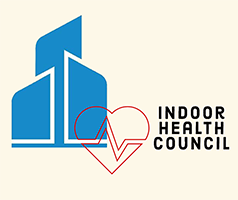Why is Cleaning for Health Not Widely Practiced?
Cleaning for health, also known as “health-based cleaning” or “hygiene-focused cleaning,” is a cleaning approach that prioritizes the safety and health of workers and occupants through an ergonomic process enabling the removal of soil and harmful microorganisms, allergens, chemicals, and unwanted matter from indoor spaces. While it has gained recognition in certain sectors, such as healthcare facilities and some commercial settings, it is not widely practiced for at least seven reasons:
1. Lack of Awareness: Many individuals and organizations may not be fully aware of the benefits of cleaning for health or may not understand the importance of proper cleaning practices in preventing the spread of disease.
2. Cost Considerations: Implementing a cleaning for health program may require investments in training, equipment, and cleaning products that may initially be more expensive than traditional cleaning methods.
3. Resistance to Change: People and organizations are often resistant to change, and transitioning to new cleaning practices may be met with resistance from staff or stakeholders who are accustomed to traditional cleaning methods.
4. Short-Term Focus: Some cleaning practices prioritize the appearance of cleanliness over health outcomes. Also, organizations may prioritize cost savings in the short term, opting for less effective cleaning practices, even if they can lead to greater long-term health and productivity costs.
5. Inconsistent Regulations: Regulations and guidelines related to cleaning practices can vary by region and industry. In most cases, there is a lack of consistent standards and enforcement of health-based cleaning practices.
6. Lack of Education and Training: Proper cleaning for health requires training and education to ensure that cleaning staff understand the importance of their role in infection prevention and how to use cleaning products effectively. Inadequate training can hinder the adoption of these practices.
7. Misconceptions about Disinfection and Health: Some people may believe that simply applying a disinfectant is sufficient for preventing illness, without recognizing the importance of proper cleaning to remove dirt and contaminants before applying disinfectants, and without recognizing many other factors that impact health.
Despite these challenges, there has been growing recognition of the importance of cleaning for health, especially in response to public health crises like the COVID-19 pandemic. As awareness increases and more research highlights the benefits of this approach, it is possible that cleaning for health will become more widely practiced in various settings. Education, advocacy, and regulatory changes can all play a role in promoting the adoption of health-based cleaning practices. (This post was prepared with help from AI).
Below: Spanish Translation with Captions (Experimental)




